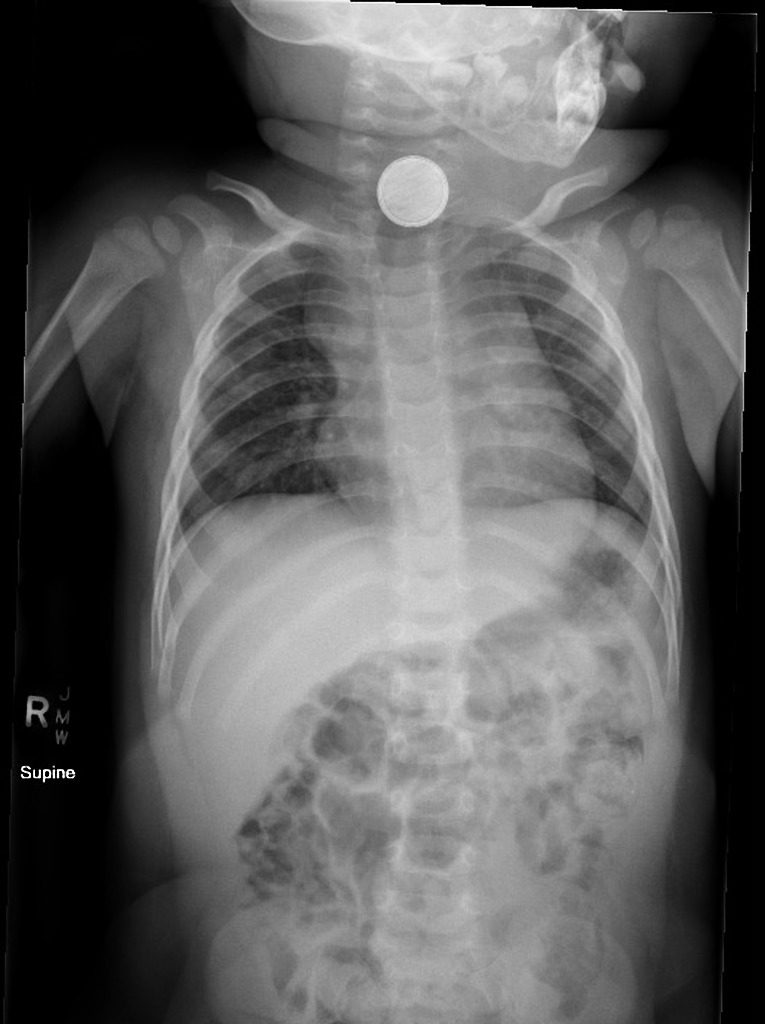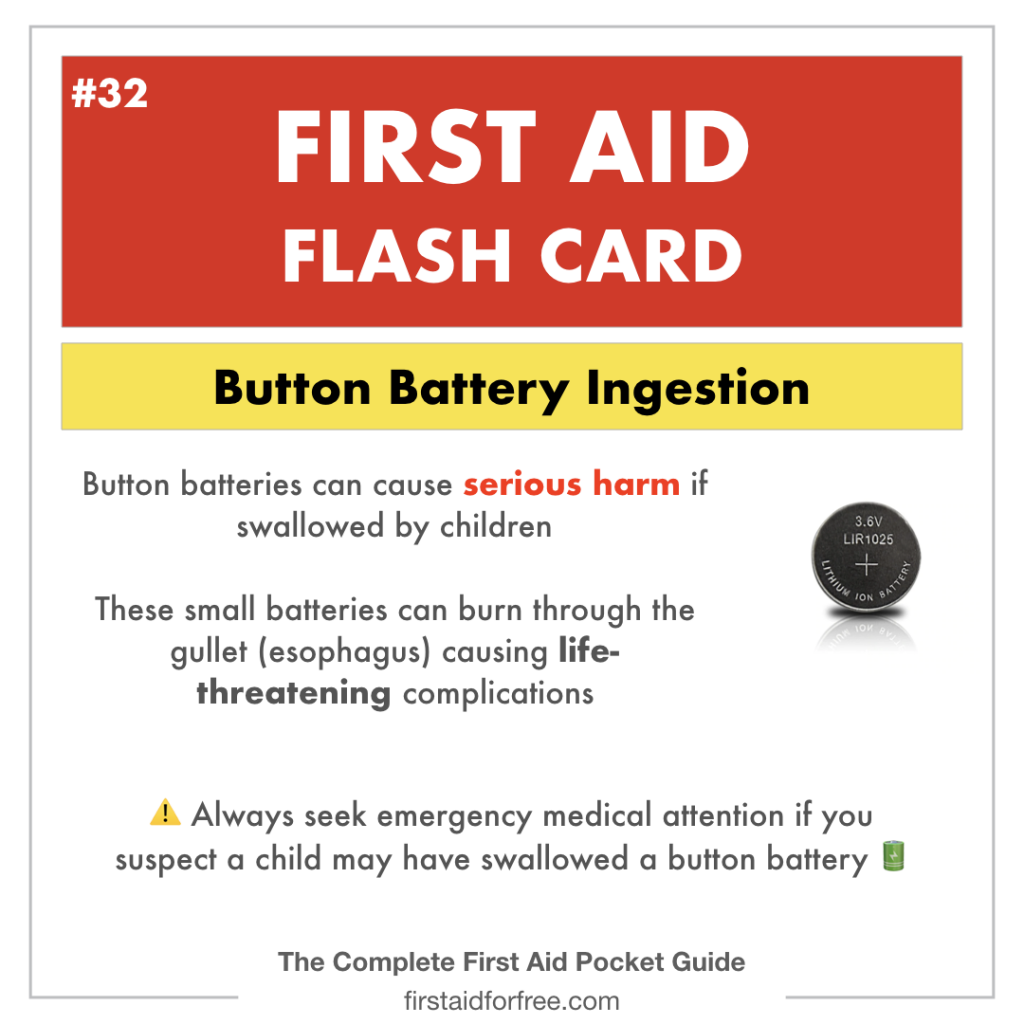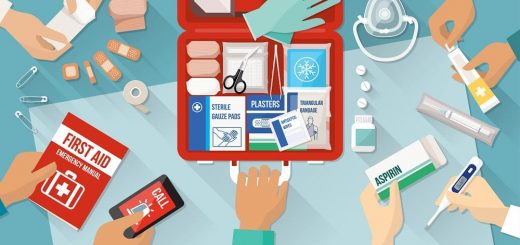Why Button Batteries Can be Lethal
A button battery (also called coin cell / disk battery) is a small battery used in small portable electronic devices, for example, watches and vehicle keys. Lithium button batteries are commonly found in our homes. These small batteries vary in size but resemble the shape of a button.
These batteries can be lethal if swallowed, especially by small children under the age of five years old who are more likely to pick up and swallow a small shiny object.
In this first aid blog post we will look at why button batteries are so dangerous for small children and the steps you should take to keep your home safe.
So why are button batteries so dangerous?
Button batteries can become lodged in the gastrointestinal tract of small children. For example, they can become stuck in the esophagus (gullet / food pipe). When the battery becomes lodged, the surfaces of the battery come into contact with the delicate linings of the gastrointestinal tract. The battery discharges a current which results in internal burns and damage to the tissues.
This damage can occur in as little as two hours and can cause life-threatening complications. The burning can result in a hole forming in the gastrointestinal tract, this is called a perforation. A perforation can be deadly as food and digestive contents can leak out causing inflammation and infection.

An additional problem is that often children are not seen to swallow the button battery. Many cases of button battery swallowing are unwitnessed.
Signs and Symptoms of Button Battery Poisoning
The signs and symptoms of a button battery ingestion can include:
- Airway obstruction or wheezing
- Drooling
- Vomiting
- Chest discomfort
- Difficulty swallowing, decreased appetite, refusal to eat
- Coughing, choking or gagging with eating or drinking
Small children will not be able to explain that they have swallowed a battery. In addition, they will not be able to describe their symptoms. As a result, diagnosing button battery poisoning can be very challenging.
Preventing Button Battery Poisoning
Children may find spare batteries in the home, or take batteries out of electronic devices. You can take simple steps to reduce the risk by:
- Search for and find all spare batteries in your home, keep these in a sealed or locked container out of reach
- Keep products with unsecured battery compartments away from children
- Educate older children on the risks of batteries






